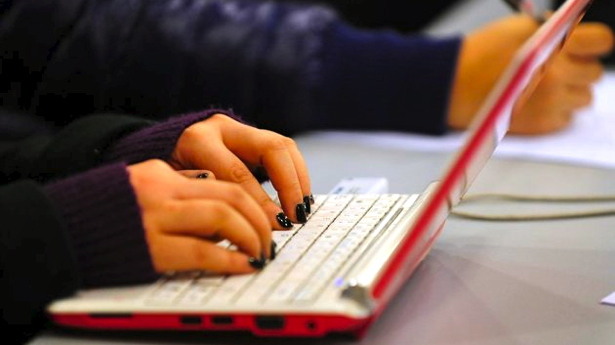
(AFP PHOTO)
Technological materials do not have a local alternative, as Egypt is not a manufacturer of technology but one of the largest importers, according to an importer of technological materials and products.
The importer, who preferred to remain anonymous, added that although the Central Bank of Egypt (CBE) continues to sell the dollar to banks, putting it in the dollar interbank market, dollar shortages still exist.
He noted that importers and importing companies are not against the CBE’s policies, but require facilities to avoid deficits that may occur in the event of an interruption or delay in imports.
He added that importers continuously request that the CBE facilitate procedures to obtain materials to not delay the import process. Technology companies also wish to be excluded from current procedures so as not to negatively affect their business.
Meanwhile, Kareem El-Fateh, Director of Intel Egypt, said there is no direct impact on the company’s imported products or materials because their partners are facilitating their imports and supplying services and technological products.
Financial Director at C-Ware Company, Amr El-Musalmi, said that the company is a free zone company, therefore they do not face limits in import.
However, El-Musalmi added that the company faces the dollar problem through its dealings with some importers who have problems in obtaining enough foreign currency to import technological materials from export companies.
El-Musalmi noted that the limit ceiling on dollar cash deposits and the long and difficult bureaucratic procedures cause postponements.
The CBE only covers requests for strategic goods, such as food commodities, raw materials and medicines, despite a lack in local alternatives for technological products.
However, the CBE attempted to resolve the issue for importers by allocating $0.5bn in May to finance the import of food commodities in preparation for the month of Ramadan.
Another attempt was made by the CBE was on 7 May when it provided banks with $300m to finance the import of raw materials, production requirements and spare parts.
The CBE has decided to set a maximum limit for the deposit of cash in US dollars at a maximum of $10,000 a day for individuals and companies, with the total monthly deposits up to a maximum of $50,000 in banks operating in the Egyptian market.




